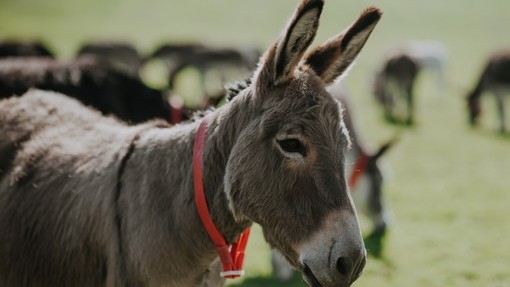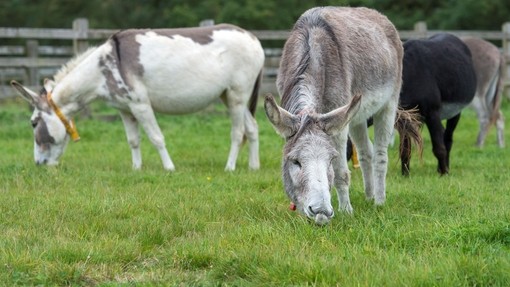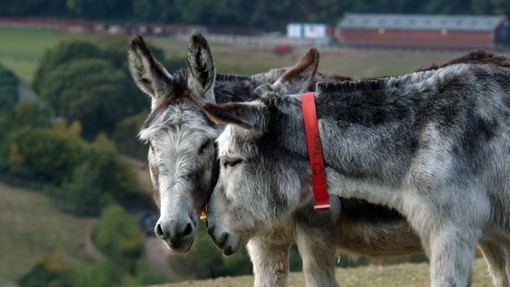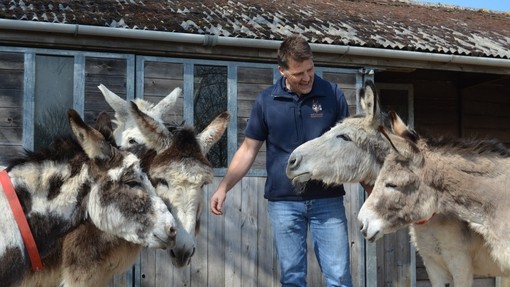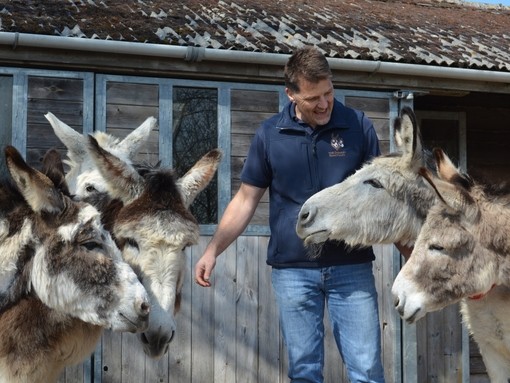
Keeping an open mind is crucial
The saddest thing I experience as a behaviourist is meeting a donkey with a long-term behavioural challenge that has not been resolved because the owner never asked for help. What is equally sad is when the owner had looked for help, but they asked in the wrong place and received the wrong advice.
One of the most challenging things as a donkey owner is knowing when to ask for help and whom to believe when you receive advice. Once upon a time, advice only came from people you were in direct contact with, such as trusted friends, the vet, books or perhaps an equine professional writing a magazine. Unfortunately, with the growth in social media and the ability to access content worldwide, information levels have reached saturation point.
I love this saying: ‘The bitterness of poor quality remains long after the sweetness of a low price is forgotten.’ When we take or give free advice, we might think there is no cost, but I think there is. The cost is lost time, broken relationships, worsening behaviour, continuing painful undiagnosed conditions and, in some cases, serious injury.
So often people reach out for professional help only when the behaviour is severe and well-established. Then they are disappointed that it might take months to resolve with consistent work and considerable effort. Finally, they are tired of trying because they have already tried so much ‘free’ advice that they can’t face starting all over again. The issue could have been more easily resolved. If only they had been directed to seek professional support like we offer here at The Donkey Sanctuary.
Understandably, with the pace of the modern world, we want quick, easy access to solutions because we are busy and care about our animals. The problem is our tendency, as humans, to suffer from confirmation bias. Our brain seeks information that agrees with our existing beliefs, values and experience while rejecting ideas that challenge our sense of who we are and what we know.
Presented with multiple scientific studies on the harmful effects of smoking, a smoker will often try to find flaws with the studies or recall the story of an aunt who smoked 20 a day most of her life and lived to 104 as evidence that the science might be wrong.
To make things even harder, confirmation bias is not a conscious process, so we most likely don’t even know we are doing it. We might be missing the right advice simply because our brain tries to make us comfortable.
We add another cognitive bias of selective perception, which is the tendency to miss or quickly forget any information that contradicts our prior beliefs or causes us emotional discomfort. We can see that our brain is attracted to information that already fits with what we believe and quickly forgets any contradictory information.
Therefore, when we ask for guidance, we are most likely to hear or notice advice that already fits our pre-existing ideas. Accepting advice that already agrees with ours makes us feel comfortable, but means we miss out on other possible solutions.
If someone believes donkeys can be naughty and stubborn, their brain seeks information supporting that view. So, when somebody suggests that pain rather than a character flaw might cause the donkey’s behaviour, it is much harder for people to accept this different view. From experience, I see the possibility of eliminating pain first is often dismissed with statements like, ‘he doesn’t always do it’ or ‘I don’t think pain is the problem’.
How can we ask for advice and ensure we are avoiding the problem of cognitive bias?
Many people have excellent knowledge, experience and undoubtedly much love for donkeys and mules. Therefore, I’m certainly not saying that every piece of advice is wrong, only that the challenge is to know which part of advice might be right for you and your unique donkeys, with their unique history, living in their unique environment, with their unique medical conditions, unique companions and with their unique human (the owner) who has a particular set of unique values, knowledge and standards.
Choosing the advice to listen to?
Listen to the person who asks more questions first. The person who tries to understand your unique situation before offering advice. After all, would you think it odd if a vet came to treat your sick donkey, but when they arrived, they gave a treatment without you asking for more details?
It is tempting to ask anyone that has been around donkeys or horses for their solution to a problem. However, I often say, ‘everyone is a behaviourist’. Everyone has an idea of what you should do to fix the donkey’s behaviour.
But the best person to ask is someone trained and qualified in equine behaviour. Just as we wouldn’t go to a dentist to ask about support for our mental health, the best person to ask for help with a donkeys’ behaviour is a behaviourist, not your Equine Dental Technician. If you are a person who wants to help other donkey owners when they raise questions, great. But first ask lots of questions, encourage people to explore their unique situation and understand the possibilities.
Asking questions first is part of how you can become a voice for donkeys.
When giving advice, you can help donkeys by first asking questions and resisting the urge to solve the problem for them. Help other donkey handlers find their unique answer for themselves. Direct people to professional sources of information, resources and learning that will set up a lifetime of learning. Encourage other donkey owners to get experienced, qualified help early; minor challenges often turn into serious behaviour issues.
Behaviour is a complicated topic with many factors that can affect a donkey. As we learn more, we all know that looking for a cause of a behaviour is the first step to creating a solution, and asking more questions helps reveal the true cause of the behaviour.
In the vast world of cyberspace, your lone voice can seem small and insignificant. However, you can make a difference in the lives of donkeys. Becoming a voice for donkeys means when you see people asking for help on social media, encourage people to ask more questions by asking more yourself and explaining the importance of questions.
Help people treat their donkeys as unique sentient beings, encourage them to avoid the cost of wasted time and get professional help early. Please direct them to qualified, trustworthy, evidenced-based sources of information; that’s how you change a donkey’s world with the simple power of asking more questions.
If you are facing a behaviour issue with your donkey, contact the Behaviour team.
Share this page
Tags
- Blog








